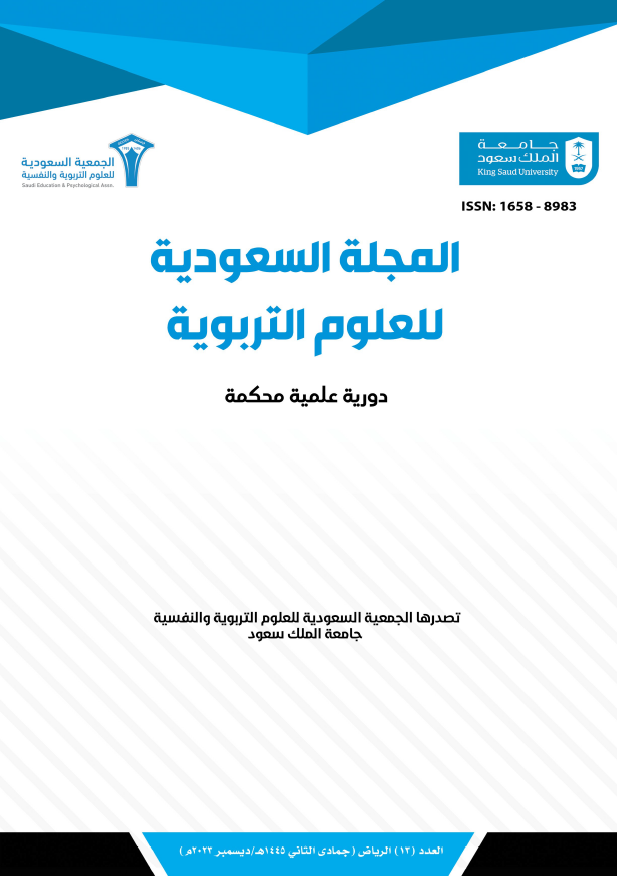The effectiveness of an instructional model based on Accelerated learning in developing future thinking skills in the mathematics course among sixth grade students
Keywords:
Accelerated Learning, Vision, Speculation, Predicting, Expectation, Solving future problemsAbstract
The study aimed to know the effectiveness of an instructional model based on Accelerated learning in develop future thinking skills in the mathematics course among sixth grade students. To achieve this goal, tool were used to collect the study data were prepared by the researcher, Future Thinking Skills and the sample consisted of (42) students, which were divided into two groups, the control and experimental group, and the number of members of each group reached (21) students, and the study reached a set of results There was a statistically significant difference between the average scores of the experimental and control groups in all future thinking skills of the mathematics units of the elementary sixth grade students in the posttest in favor of the experimental group students in all cases. The independent variable (the proposed accelerated learning-based instructional model) has an intermediate effect on the development of (vision determination skill & speculation skill) and has a strong influence on the development of (prediction skill, expectation skill, and future problems solving skills) of the experimental group students




